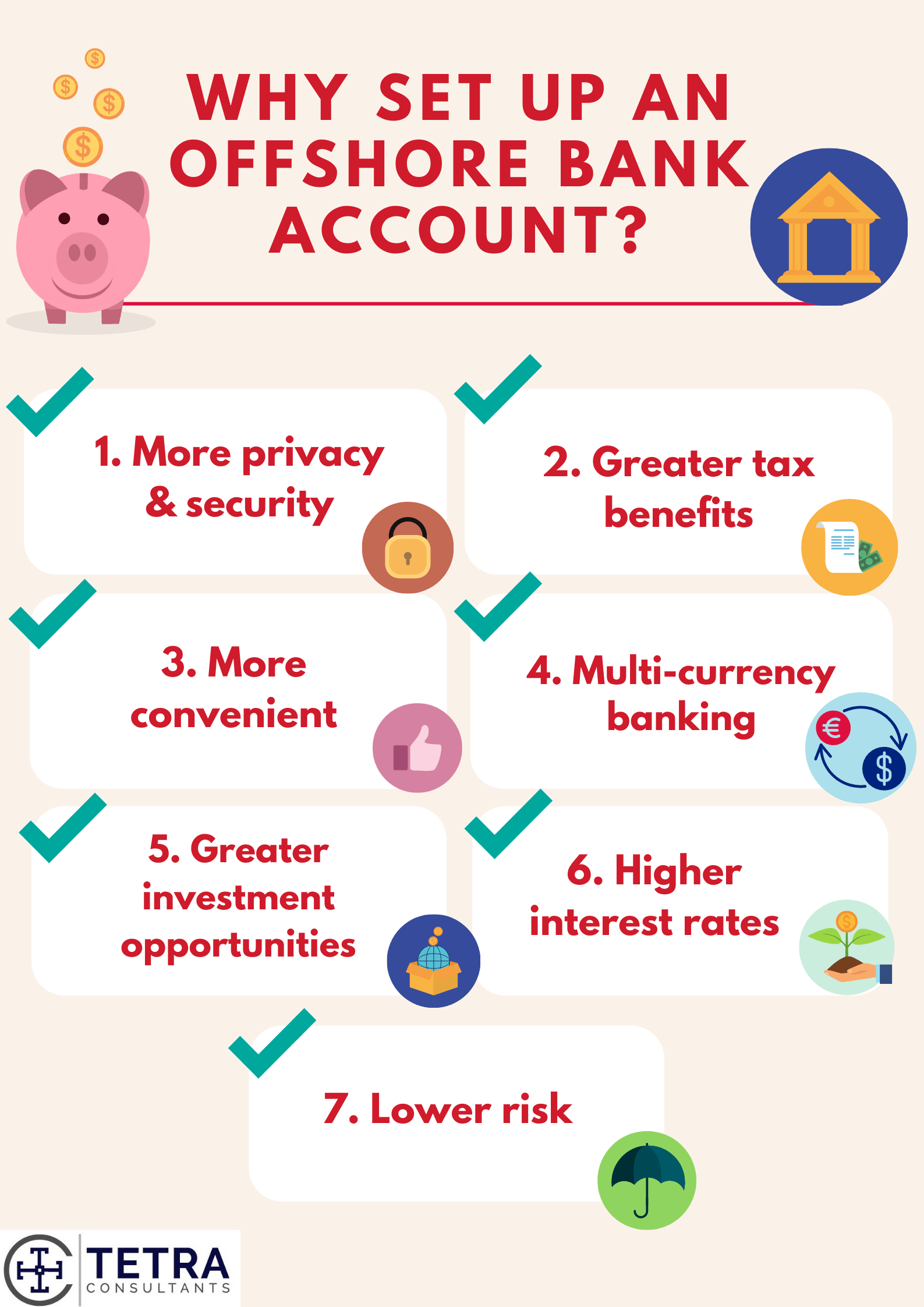Why Offshore Business Formation Is the Trick to Expanding Your Global Company
Offshore company development offers a strategic method for businesses looking for to expand their global footprint. By maximizing beneficial governing settings, companies can not just optimize their tax obligations however additionally boost their operational flexibility and privacy. As organizations navigate intricacies in international markets, recognizing the intricacies of offshore structures comes to be essential. However, the implications of such a step extend past simple financial advantages; they can basically improve a firm's technique to international competition. What factors should be thought about to maximize these benefits?
Advantages of Offshore Business
Offshore business provide a variety of substantial benefits that can boost economic effectiveness and offer calculated benefits for service proprietors. Many territories provide beneficial tax obligation regimes, allowing services to significantly minimize their overall tax responsibility.
In addition, offshore business commonly give boosted privacy and property defense. Service proprietors can secure their individual properties from potential lawful claims or creditors, protecting their riches and ensuring financial safety and security. The anonymity used by certain territories can also prevent undesirable scrutiny and keep privacy in service dealings.

Finally, offshore structures can improve operational flexibility. Service owners can explore different company structures that line up with their strategic objectives, enabling for much easier monitoring of global purchases and investments. Collectively, these benefits make overseas companies an attractive choice for business owners seeking to optimize their business endeavors.
Key Factors To Consider for Formation
When pondering the formation of an offshore company, a number of vital factors to consider should be evaluated to ensure a successful facility. It is important to choose a jurisdiction that straightens with the firm's critical objectives and functional needs.
Next, understanding the regulatory requirements is necessary. This consists of conformity with regional legislations, licensing, and registration processes. Involving with legal and financial consultants who concentrate on overseas formations can aid navigate these intricacies and ensure adherence to all needed regulations.
In addition, consider the structure of the business. The option in between a minimal liability company, firm, or partnership will certainly influence responsibility, tax obligation effects, and functional adaptability.
One more important variable is the financial facilities offered in the picked jurisdiction. Accessibility to robust financial services can promote purchases and improve company effectiveness.
Tax Advantages and Rewards
Developing an offshore firm can open an array of tax obligation advantages and motivations that significantly improve its economic feasibility. Numerous jurisdictions offer favorable tax programs, including low or absolutely no corporate tax rates, which can cause substantial cost savings for businesses. For example, countries such as the British Virgin Islands and the Cayman Islands supply tax-neutral atmospheres, allowing companies to maintain even more of their earnings.
In addition to decreased tax obligation rates, overseas business may gain from various motivations targeted at bring in foreign investment. These can include tax vacations, exemptions on certain types of earnings, and streamlined regulative procedures. Such motivations can considerably decrease operational costs, enabling business to reinvest financial savings right into development initiatives.
Moreover, offshore frameworks can facilitate tax obligation planning approaches, such as profit changing and loss balancing out, which further maximize tax obligation obligations. By tactically utilizing these advantages, organizations can produce an extra competitive financial framework.
Access to Global Markets
The calculated formation of an offshore firm not only offers tax advantages however additionally opens opportunities for access to international markets. By operating from a territory that encourages worldwide organization, companies can engage with diverse economies and tap into a broader customer base. This geographical adaptability boosts the ability to work out beneficial terms with distributors and companions throughout various areas.
Additionally, overseas business often gain from minimized governing obstacles, enabling smoother access into emerging markets. This is especially crucial for companies looking to expand into countries with intricate lawful frameworks, where regional unification useful reference may pose considerable obstacles (offshore company formation). The capacity to operate without the typical constraints of a residential structure permits business to adapt rapidly to market needs and introduce without fear here are the findings of too much oversight
In addition, an overseas firm can promote much easier currency deals, making it possible for businesses to make use of desirable exchange prices and mitigate monetary dangers. By strategically placing themselves in essential international markets, companies can leverage the benefits of regional customer trends and preferences, inevitably driving development and enhancing their international impact. Thus, offshore firm formation is a crucial method for any kind of company desiring attain global success.
Enhancing Company Flexibility
Offshore company formation significantly enhances organization adaptability, enabling companies to browse transforming market conditions with agility. By developing an offshore entity, organizations can take advantage of diverse regulatory structures that commonly give much more positive operating conditions. This enables them to adapt promptly to changes in customer need, arising innovations, or affordable pressures without the constraints generally connected with domestic guidelines.

Furthermore, overseas frameworks typically enable structured decision-making processes, facilitating fast actions to market chances or obstacles. Business can reapportion resources, pivot techniques, or go into new markets with minimal administrative delays, thus maintaining a competitive edge. This flexibility is especially crucial in today's fast-paced worldwide economic climate, where dexterity can visit this page make the distinction between success and failure.
Furthermore, the capacity to operate in several jurisdictions can offer a buffer against local financial downturns, enabling businesses to move emphasis to a lot more successful markets. By expanding their operational bases, business not only improve their durability however additionally place themselves for lasting development. In recap, offshore firm development is a calculated move that encourages organizations to continue to be adaptable, responsive, and eventually successful in an ever-evolving worldwide landscape.
Verdict
